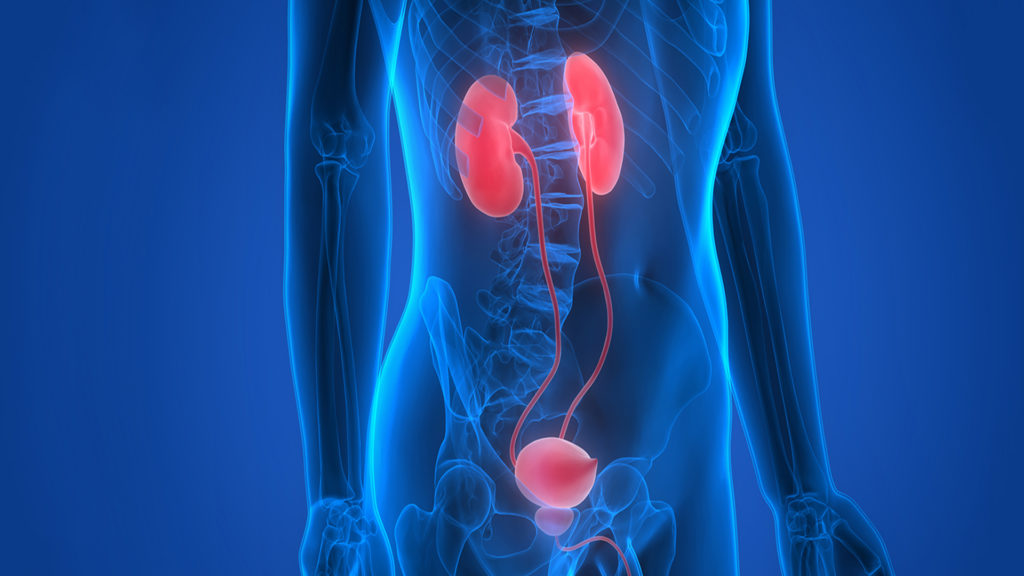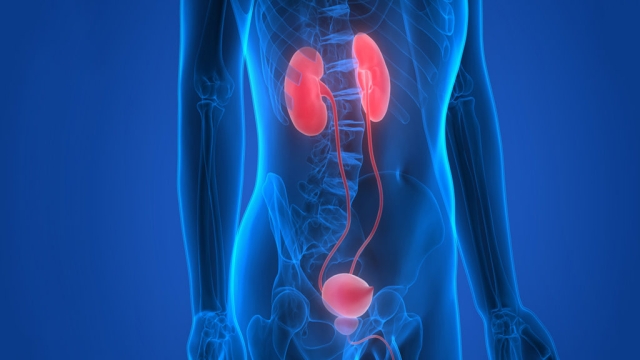Welcome to the fascinating realm of urology, where we delve into the intricacies of the genitourinary system, unravelling its secrets and shedding light on its functions. Urology, a specialty branch of medicine, focuses on the diagnosis and treatment of conditions related to the urinary system and the male reproductive system. From kidneys to bladder, prostate to testes, urologists play a crucial role in maintaining the health and functionality of these vital organs.
The genitourinary system performs indispensable functions, such as filtering waste products from our blood, regulating fluid balance, and facilitating the production and transportation of urine. Beyond urinary health, urologists also address concerns surrounding men’s reproductive health, including erectile dysfunction, infertility, and prostate disorders. By combining surgical expertise with medical knowledge, these specialists advocate for a holistic approach to patient care, ensuring optimal outcomes and improved quality of life.
Now, let us embark on a journey to explore the captivating world of urology, uncovering the mysteries of the genitourinary system and gaining a deeper understanding of how it impacts our overall well-being. Get ready to unveil the secrets that lie within this fascinating medical discipline as we delve into the realm of urology.
Understanding Urology
Urology is a branch of medical science that deals with the study and treatment of the genitourinary system. This specialized field focuses on the diagnosis and management of diseases and disorders related to the urinary system, which includes the kidneys, ureters, bladder, and urethra, as well as the male reproductive organs. Urologists are trained medical professionals who possess extensive knowledge and expertise in this area.
One of the primary functions of the urinary system is to filter waste products from the blood, producing urine that is then expelled from the body. Urologists play a vital role in diagnosing and treating conditions that can impair the normal functioning of the urinary system. Some examples of common conditions urologists deal with include urinary tract infections, kidney stones, urinary incontinence, and bladder and prostate cancers.
In addition to treating medical conditions, urologists also provide care for individuals with reproductive disorders, particularly those affecting men. Conditions such as erectile dysfunction, infertility, and prostate problems fall within the realm of urology. Urologists perform various diagnostic tests and procedures to evaluate the health and functionality of both the urinary and reproductive systems, enabling them to develop appropriate treatment plans for their patients.
Understanding the field of urology is essential in order to appreciate the crucial role it plays in maintaining the health and well-being of individuals. By specializing in the study and treatment of the genitourinary system, urologists are able to address a wide range of conditions, offering patients both medical and surgical interventions, as well as guidance on preventive measures to maintain optimal urinary and reproductive health.
Conditions and Disorders
In the realm of urology, a diverse range of conditions and disorders can affect the genitourinary system. These ailments can cause discomfort, pain, and disruption to the normal functioning of the urinary and reproductive organs. In this section, we will dive deeper into three common conditions encountered in urology.
-
Kidney Stones: These tiny, hard mineral deposits can form within the kidneys and cause severe pain when they pass through the urinary tract. The most common types of kidney stones include calcium oxalate and uric acid stones. Factors such as dehydration, a diet high in certain substances, and certain medical conditions can contribute to their formation. Treatment options for kidney stones can vary depending on the size and location. They range from medication to promote passage, to minimally invasive procedures such as the use of shock waves or lasers to break up the stones.
-
Urinary Tract Infections (UTIs): UTIs occur when bacteria, usually from the digestive tract, enter the urinary system and multiply. Common symptoms of UTIs include a frequent urge to urinate, pain or a burning sensation during urination, cloudy or strong-smelling urine, and pelvic pain. Women tend to be more prone to UTIs due to their anatomical structure, but men can also develop them. Antibiotics are prescribed to treat UTIs, and increasing fluid intake is often recommended to help flush out the bacteria.
-
Erectile Dysfunction (ED): This condition, also referred to as impotence, is characterized by the inability to achieve or maintain an erection sufficient for sexual intercourse. ED can have various causes, including underlying medical conditions like diabetes or heart disease, psychological factors, or certain medications. Treatment options for ED range from medications that enhance blood flow to the penis, such as sildenafil (Viagra), to vacuum erection devices or even surgery in some cases.
Understanding these conditions and disorders is vital in order to provide appropriate medical care and support to individuals grappling with issues related to the genitourinary system. By shedding light on these secrets of urology, we can find ways to prevent, diagnose, and treat such conditions, ultimately improving the quality of life for patients.
Treatment Options
-
One of the primary treatment options available in the field of urology is medication therapy. For many genitourinary conditions, such as urinary tract infections or kidney stones, prescription medications can provide effective relief. These medications are designed to target specific issues within the genitourinary system and help alleviate symptoms or address underlying causes. It is essential to consult with a urologist who can prescribe the appropriate medications based on the individual’s needs and medical history.
-
Surgical interventions are also commonly employed in urology to treat various conditions. These procedures can range from minimally invasive techniques to more complex surgeries, depending on the nature and severity of the ailment. Surgeries in urology may involve the removal of tumors, repair of damaged organs, or even the transplantation of organs like kidneys. Urologists work closely with their patients to determine the most suitable surgical approach and ensure optimal outcomes.
-
In recent years, there has been a significant advancement in the field of urology with the emergence of innovative non-invasive treatments. For instance, extracorporeal shockwave lithotripsy (ESWL) is a non-surgical technique utilized to break down kidney stones using focused sound waves. Similarly, there are various other non-invasive procedures available that can be employed to manage conditions like benign prostatic hyperplasia (BPH) or urinary incontinence. These treatments often provide effective results while minimizing post-treatment discomfort and recovery time.

Overall, treatment options in urology encompass a wide range of approaches, including medications, surgical interventions, and non-invasive procedures. The choice of treatment depends on the individual’s specific condition and should be determined in consultation with a qualified urologist. By exploring these various options, urologists aim to improve patients’ quality of life by successfully addressing genitourinary ailments.






